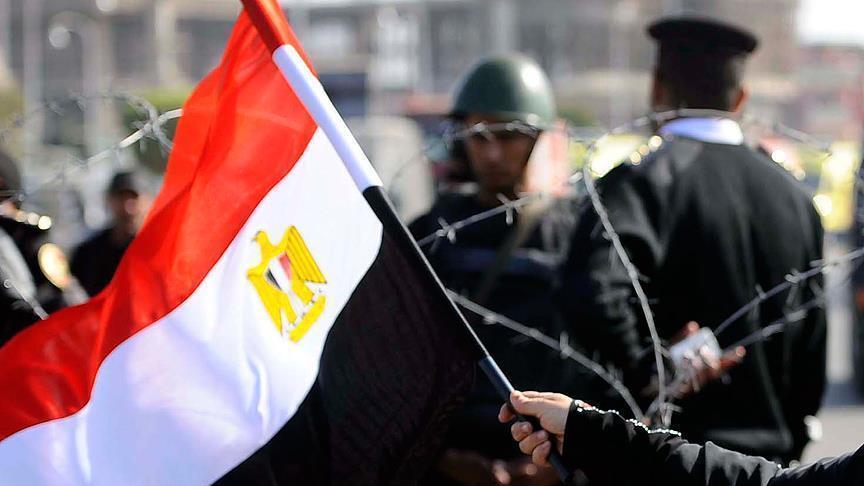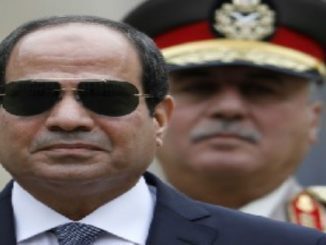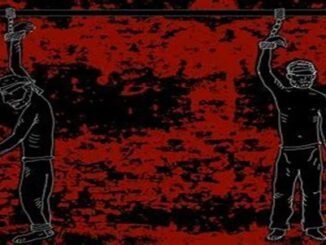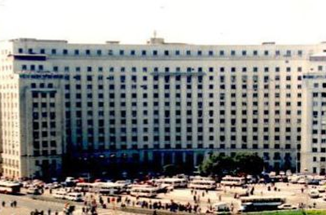
Several Egyptian cities have witnessed skirmishes between protesters and the Egyptian police forces on Friday, according to Anadolu Agency.
Hundreds of protesters took to the streets after Friday Prayers to participate in the “Uprising of the Poor” day on Friday, November 11 organized by some opposition forces.
The protest calls erupted in September amid a social media campaign by the “Ghalaba” Movement’s Facebook page to defend the “poor”.
In the same context, the Muslim Brotherhood has encouraged participation in Friday’s protests, the group’s spokesperson Mohamed Montasser said in a statement published online, as reported by Daily News Egypt.
The statement reads, “The group calls on its members to participate and promote the protests, as part of any revolutionary movement which upholds the demands of the Egyptian people for bread, freedom, and social justice.”
The group further clarified that it strongly opposes the “catastrophic economic decisions that affect the majority of the people.”
In fact, the calls came as a result of major economic policies that raised the Egyptians public concerns regarding their effects on low- income classes, including the government’s decision to liberate the Egyptian pound on 3 November.
The Egyptian government has floated the local currency and raised fuel prices in order to meet the reforms demanded by the International Monetary Fund to secure a $12 billion bailout loan.
However, as these reforms earned praise from the IMF and the international business community, they have also spawned rising prices and costs of living for an already frustrated Egyptian population.
The Egyptian Security Forces Disperse Protesters
Most of the major squares in Egypt didn’t witness major protests as the Egyptian security forces have deployed in the main squares of the capital and set up checkpoints around Greater Cairo in anticipation of Friday’s planned “Revolution of the Poor”, as reported by Anadolu Agency.
According to a local security source, who spoke anonymously due to restrictions on speaking to media, he said police had set up checkpoints at the entrances of the urban Cairo, Giza, and Qalyubia provinces and along major thoroughfares, according to Egyptian press reports.
In addition, the security has also been stepped up at Cairo International Airport and in Tahrir Square (the main square of January 25 Revolution in 2011) and in Rabaa al-Adaweya Square, (the main square for anti-coup protest in 2013, where the well-known “Rabaa massacre” took place on August 14 of the same year).
The Egyptian authorities have also closed Cairo’s Sadat metro station, which leads to Tahrir Square on Thursday.
In several cities, the police forces have dispersed the protesters with tear gas. In addition, the police forces arrested four protesters at al-Menoufia governorate, and they were referred to the prosecution, according to a security source.
In the same context, several human chains and rallies were organized in several governorates as al-Fayoum and Beni Suef (center), al-Sharqeya and al- Mansoura (north), and in Faisal and Nahya at Giza Governorate (west of Cairo) from streets.
The participants raised the Egyptian flags and banners with slogans that reflect their suffering and poor conditions in reference to the economic crisis that hits Egypt especially after the military coup in 2013.
The security forces open al-Tahrir Square for al-Sisi supporters only
Despite heavy security presence around major Cairo squares, however, al-Sisi’s supporters have found their waintoto al-Tahrir square.
The police forces have allowed the al-Sisi supporters to bypass the checkpoints and stand at al-Tahrir square holding al-Sisi’s pictures.
At the same time, Field Marshall Mohamed Hussein Tanatawi, who headed the Supreme Council of the Armed Forces council(SCAF) that ruled Egypt for 17 months after Hosni Mubarak’s fall in February 2011, appeared at al-Tahrir square that turned into a military camp, and he said, “Long Live Egypt, long live the armed forces, God protect our sons,” as reported by al-Ahram gate, a state-owned news website.
The Egyptian economy is facing one of its harshest crises in its history as discontent rises in similar conditions to Egypt’s economic and social inequalities that helped the outbreak of January Revolution five years ago.
Food shortages are widespread and prices are soaring. More people are living in poverty and unemployment remains high, especially among the nation’s disenchanted youth.
When al-Sisi, a former general who rose to power after he launched a military coup against Morsi, pledged to enact economic changes and improve the lives of Egyptians. However, his economic policies didn’t only fail in resolving Egypt’s economic problems but they were escalated in unprecedented way in the country’s history.
Today, inflation has risen to the highest levels in years and it is expected to rise more after the floating of currency. Nearly a quarter of the country’s 94 million people live in poverty. The official jobless rate is 13%, and triple that among young Egyptians.
In addition, tourism industry -a major source of hard currency- declined over concerns about terrorism with no signs of revival. The number of tourists visiting the country declined after the downing of a Russian plane last year over the Sinai Peninsula by Sinai Province – a group affiliated to the Islamic State (ISIS) as well as a mysterious crash of an Egypt Air flight over the Mediterranean this year.
Tourism was also affected by the torture and murder of an Italian student Giulio Regeni in Cairo this year and the mistaken killing of Mexican tourists by Egyptian security forces in September 2015.
Furthermore, critics have previously blamed al-Sisi for grandiose projects that have sucked up billions in aid and taxpayers’ money. They include a large expansion of the Suez Canal, which failed to generate higher shipping revenue, as well as plans for a new, Dubai-like capital city in the desert.



